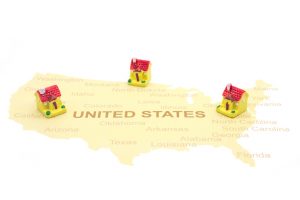When it comes to wills and living trusts, you may hear a lot of discussion about avoiding probate. The degree of importance of avoiding probate will vary from person to person and will depend on exactly what assets you possess. There are certain groups of people for whom avoiding probate is especially important. If you’re someone who owns property in multiple states, you very possibly are one of those people. That means that the right type of estate planning can potentially save your loved ones a great deal of time and money, so you should make sure to contact an experienced Hoboken estate planning attorney about your situation.
A while ago, the advice column NJMoneyHelp.com relayed the story of a child whose father had died without a will. When you die with no will in New Jersey, that’s called “dying intestate” and it means your assets are distributed under the terms of New Jersey’s intestate distribution law.
When that distribution was finished, the child had received the father’s timeshare. The NJMoneyHelp.com piece did not state where the timeshare was located but, given that only about 1% of all timeshares are located here in the Garden State, it is certainly possible that it was somewhere outside New Jersey, like Florida or South Carolina.
If you are the current owner of that secondary property, it is important to recognize how the law works with regard to real estate and probate, and how many of these many situations trigger a need for a skilled New Jersey attorney.
The scenario that can lead to a need for probate in multiple states…
For example, let’s say you live in Brooklyn and created a will that left your beach house in Asbury Park to your daughter who lives in Philadelphia. When it comes to ownership of real estate that was transferred within a will (or through intestate law,) the law typically requires that the will go through the probate process in the state where the property is located.
So, even though you are a New York resident, and even if your will goes through the probate process in New York, it also has to go through probate in New Jersey before your daughter can take ownership of the beach house. (By the way, if you are someone in the position of this hypothetical daughter, then you are someone in need of a New Jersey court proceeding, so it’d be wise to hire a knowledgeable New Jersey attorney who is familiar with the process and the courts.)
Having to probate a will in multiple places, of course, has the potential to cause a fair about of complexity – and perhaps expense — for your estate and for your loved ones. The more states where you own property, the more probate processes and the greater the possibility for complication. Say you live in Hudson County, own a home here, own a fishing cabin in upstate New York and own a beach condo in Florida. That scenario potentially could mean that your estate has to go through probate three different times in three different states.
…and how it can be avoided
A situation like that example is one of the scenarios where a living trust may be very helpful. A living trust is a useful tool that can hold your assets. A properly drafted, executed and handled living trust can allow your assets to pass to your beneficiaries upon your death without needing to go through probate. If your assets pass completely outside probate, then obviously then need for multiple probates would be eliminated.
For certain people, living trusts have the potential to do a lot of good – such as allowing their families to avoid the two or three (or more) probate processes that would otherwise be needed. Whether your estate needs a will, a living trust or other estate planning tools, rely on knowledgeable Hoboken estate planning attorney Frank Marciano to provide the effective legal representation needed to help you achieve your goals. To set up a consultation, contact the office online or call 201.656.1000.
 Hoboken Family Law Blog
Hoboken Family Law Blog


